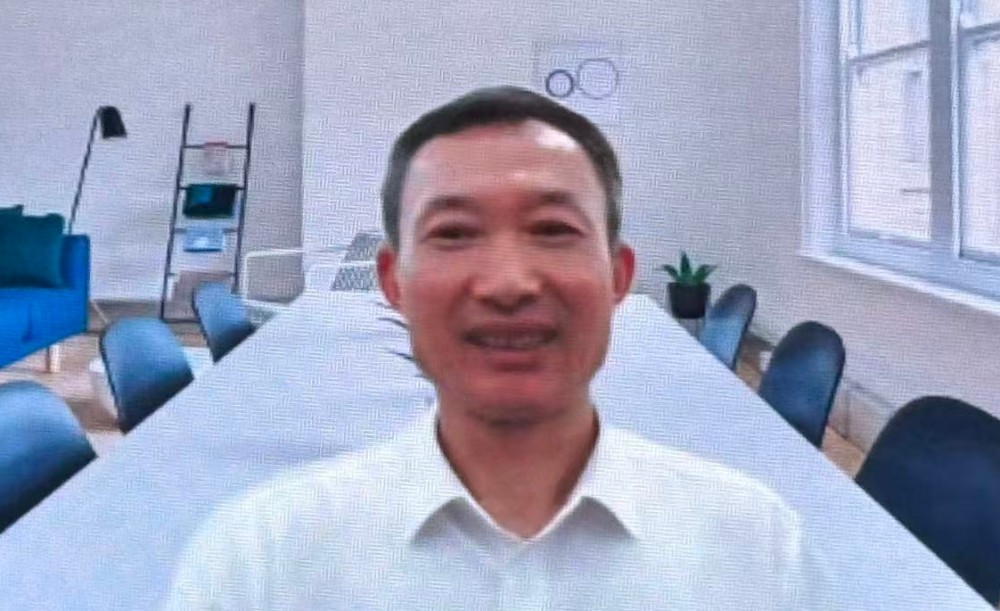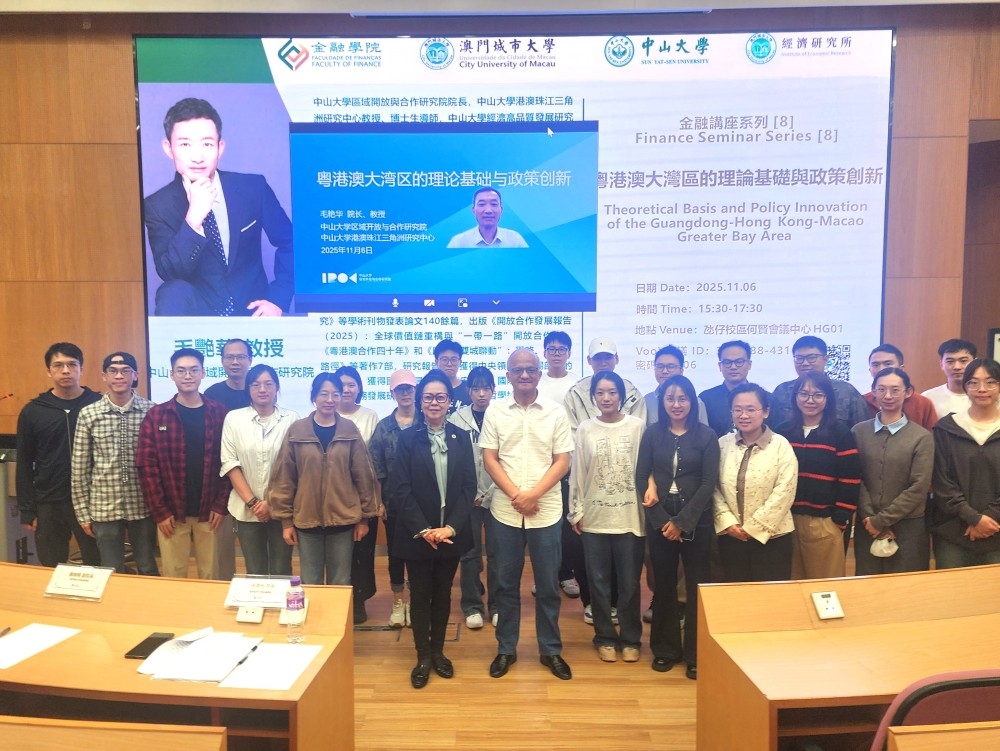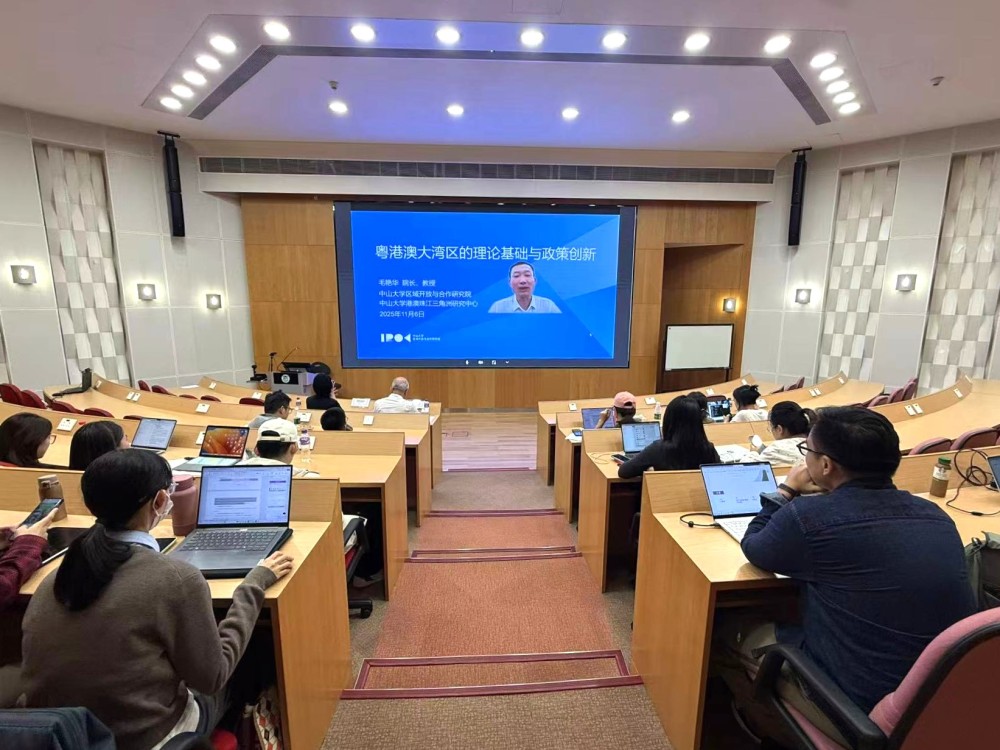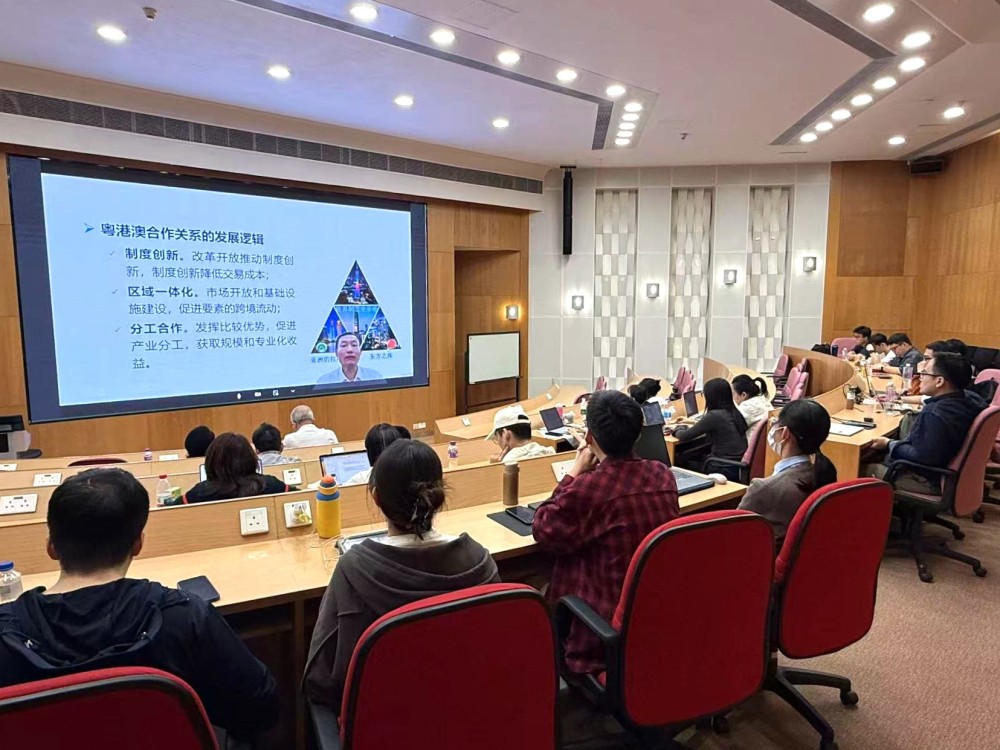On November 6, 2025, the Faculty of Finance of City University of Macau held a finance seminar at Ho Yin Conference Center on Taipa Campus. The seminar featured Professor Mao Yanhua, Dean of the Institute of Regional Opening and Cooperation at Sun Yat-sen University, was invited as the keynote speaker. The seminar focused on the theme "Theoretical Basis and Policy Innovation of the Guangdong-Hong Kong-Macao Greater Bay Area.” Distinguished guests included Dean Adrian Cheung and Associate Dean Eva Khong of the Faculty of Finance.
Professor Mao Yanhua is currently the Dean of the Institute of Regional Opening and Cooperation at Sun Yat-sen University, a Professor and Doctoral Supervisor at the Sun Yat-sen University Center for Hong Kong, Macao, and Pearl River Delta Studies, and the Director of the Sun Yat-sen University Research Center for High-Quality Economic Development. He has long been engaged in teaching and research in fields such as International Trade, Regional Economics, the Guangdong-Hong Kong-Macao Greater Bay Area, Free Trade Zone Strategy, and the "Belt and Road" Initiative. He has conducted academic exchanges and research at overseas institutions including The Chinese University of Hong Kong, Waseda University, and New York University. As a core member, he participated in the research and drafting of national documents such as the "Outline Development Plan for the Guangdong-Hong Kong-Macao Greater Bay Area," the "Construction Plan for an International Science and Technology Innovation Hub in the Guangdong-Hong Kong-Macao Greater Bay Area," and the "Overall Plan for the China (Guangdong) Pilot Free Trade Zone." He has been appointed as a member of the Expert Committee for Guangdong Province's 14th Five-Year Plan and a member of the Guangzhou Municipal People's Government Decision-making Advisory Committee, among other roles. He has led key projects including the National Natural Science Foundation of China Key Project "Research on Building a Guangdong-Hong Kong-Macao Regional Linkage Mechanism and Development for Serving the 'Belt and Road", the National Social Science Fund Major Project "Research on the Coordinated Development Mechanism System of the Guangdong-Hong Kong-Macao Greater Bay Area in the New Era", the National Social Science Fund "Belt and Road" Major Special Project "Research on the Construction of 'Belt and Road' Trade Corridors", and numerous decision-making consultation projects for national ministries, provincial, and municipal governments. He has published over 140 papers in academic journals such as "Economic Research" and has authored 7 books, including "Open Cooperation Development Report (2025): Global Value Chain Restructuring and 'Belt and Road' Open Cooperation", "Four Decades of Guangdong-Hong Kong-Macao Cooperation", and "Guangzhou-Shenzhen 'Twin-City Linkage': Strategy, Mechanism, and Path". His research reports have received important instructions from central leadership and relevant departments. He has received awards including the top international trade research award, the "Ann Tse Kai" International Trade Research Award, the Ministry of Commerce Award for Outstanding Achievements in Business Development Research, and the Guangdong Province Outstanding Achievement Award in Philosophy and Social Sciences.
During the seminar, Dean Mao Yanhua pointed out that against the backdrop of the nation's push to form a new pattern of comprehensive opening up, the Guangdong-Hong Kong-Macao Greater Bay Area, as an important practice under the "One Country, Two Systems" framework, is becoming a remarkable model of regional cooperation with its unique institutional advantages and development potential. The lecture content was mainly divided into four parts: the evolution logic and three stages of Guangdong-Hong Kong-Macao cooperative relations; the basic facts and theoretical foundations of the Greater Bay Area; the coordination, governance mechanisms, and experiences of typical international bay areas; and the ideas and directions for policy innovation in the Guangdong-Hong Kong-Macao Greater Bay Area.
This seminar aimed to explore the future development of the Greater Bay Area, providing theoretical support and practical guidance for regional cooperation. Dean Mao analyzed from an economic perspective that the cooperative development of the Guangdong-Hong Kong-Macao Greater Bay Area can be viewed as a process of regional economic integration. By innovating institutional mechanisms to promote complementary advantages and division of labor among the cities, the powerful agglomeration and spillover effects of the bay area economy can be harnessed to enhance international competitiveness and influence. The Guangdong-Hong Kong-Macao Greater Bay Area is a cross-border regional cooperation involving "one country, two systems, three customs territories, three legal systems, and four core cities." Compared to typical international bay areas and domestic cross-provincial cooperation, there are significant differences in the systems, rules, and administrative procedures among the three places within the Greater Bay Area, making it a process of regional integration under a special institutional environment. This "differentiation" is the value of the Guangdong-Hong Kong-Macao Greater Bay Area. Dean Mao also mentioned the nation's emphasis on and support for the construction of the Greater Bay Area, pointing out that it is both a new attempt in the new era to promote the formation of a new pattern of comprehensive opening up and a new practice to promote the development of the "One Country, Two Systems" cause. The goal is to make the Guangdong-Hong Kong-Macao Greater Bay Area a strategic pivot for the new development pattern, a demonstration zone for high-quality development, and a leading area for Chinese modernization.
Finally, the Faculty of Finance of the City University of Macau expressed its sincere gratitude to Dean Mao Yanhua for his excellent presentation. Dean Mao's sharing not only provided faculty and students with profound theoretical support and valuable practical guidance but also offered important ideas and suggestions for promoting the sustained development of the Guangdong-Hong Kong-Macao Greater Bay Area. Students unanimously expressed that they benefited greatly from the seminar, which also provided significant help for their future research directions.






